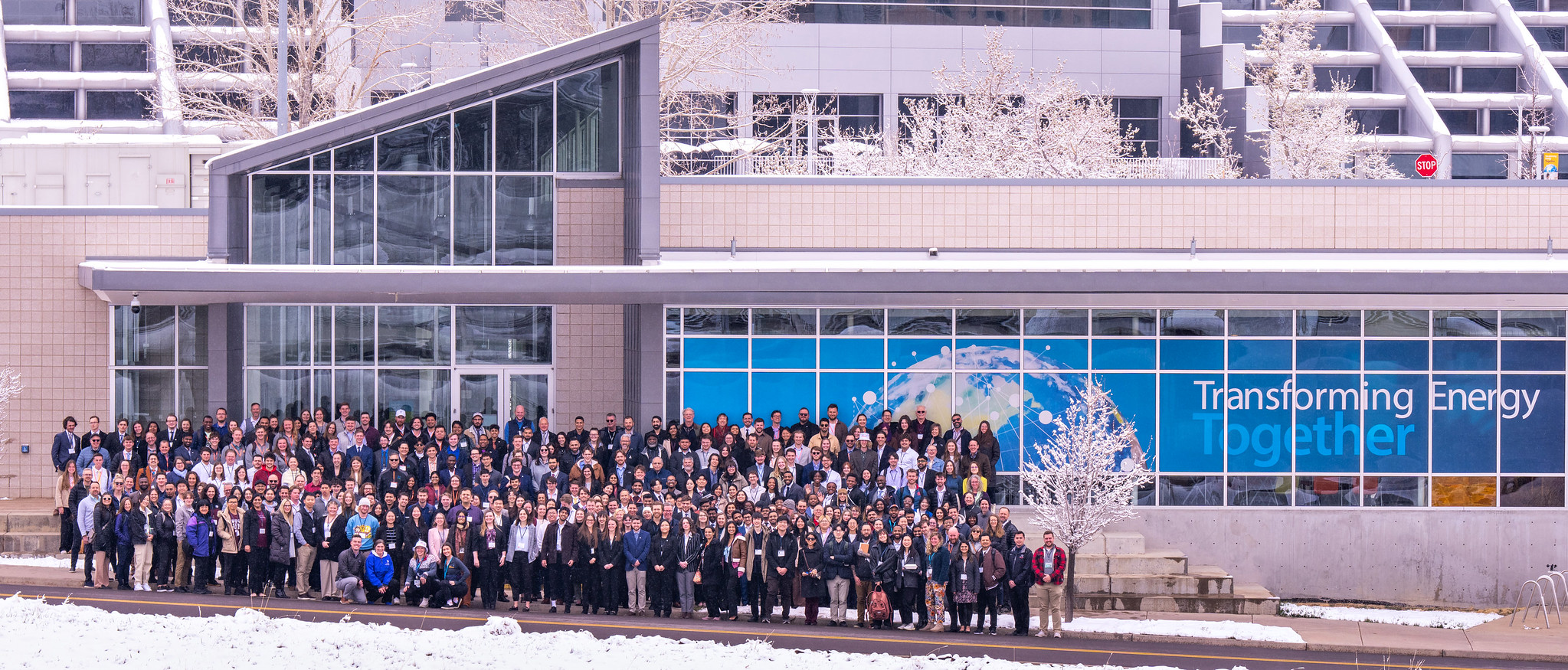ABET Innovation Award

The U.S. Department of Energy Solar Decathalon is the 2023 ABET Innovation Award Recipient.
About the Award
The ABET Innovation Award recognizes vision and commitment that challenge the status-quo in technical education.
It honors an individual and/or a program or an institutional team that has broken new ground by developing and implementing innovation into an ABET-accredited program.
True innovation is hard to define, but easy to identify. This award distinguishes programs that have brought a new dimension to education in areas like: curriculum development, laboratory experiences, teaching methodologies, cross-disciplinary programs, experiential learning – almost anything designed and proven to improve a student’s educational experience.
2023 Winner
U.S. Department of Energy Solar Decathlon®
For providing innovative hands‐on STEM
educational experiences and industry mentoring in Building Science that prepares students for the clean energy workforce through the Solar Decathlon Design and Build Challenges.
The U.S. Department of Energy Solar Decathlon® is a collegiate competition that has inspired thousands of students worldwide to enter the clean energy workforce since its inception in 2002. Today, the ten contests that are the foundation of Solar Decathlon challenge students to design high-performance, low-carbon buildings that mitigate climate change and improve our quality of life through greater affordability, resilience and energy efficiency.
Award Benefits
- Recognition at the ABET Awards program in the fall
- $10,000 cash prize
- Recipient and their work will be featured on the award page, recognized in a press release, ABET news announcement and ABET social media pages.
Past Recipients
2021: Villanova University College of Engineering Career Compass Program
For successful implementation of a mandatory undergraduate engineering program that stimulates and develops broad-based innovative leadership and management skills, preparing each graduate for entry into a dynamic workplace. Learn more.
2020: IT Students Capacity Building Program by iSITE — Integrated Southern Tagalog Association of IT Education
For providing collaborative industry-aligned seminars, training and conferences to students in geographically dispersed IT programs and promoting opportunities for students to interact, learn and showcase their work. Learn more.
2019: Vertically Integrated Projects (VIP) Consortium
For community-building around and dissemination of the Vertically Integrated Projects model, a scalable, cost-effective approach to undergraduate research adopted by 35 colleges and universities in the U.S. and abroad. Learn more.
2018: Formula Hybrid Competition, founded by the Thayer School of Engineering at Dartmouth
For national leadership and impact in uniquely challenging students in ABET-accredited programs to collaborate across disciplines to provide innovative design experiences and build fuel-efficient, high-performance hybrid vehicles. Learn more.
2017: Iron Range Engineering and Twin Cities Engineering, Minnesota State University, Mankato
For educating their students in innovative ABET-accredited programs that feature trans-disciplinary thinking, industry-sponsored project-based learning, experiential learning in context, competency-based assessments and significant exposure to professionalism, design and creativity. Learn more.
2016: Worcester Polytechnic Institute (WPI) – Robotics Engineering Program
For developing and implementing the first ABET-accredited undergraduate Robotics Engineering program in the United States. The program incorporates an innovative, project-based curriculum that integrates computer science, engineering and entrepreneurship. It is producing large numbers of successful graduates, while serving as a model for Robotics Engineering programs at other institutions. Learn more.